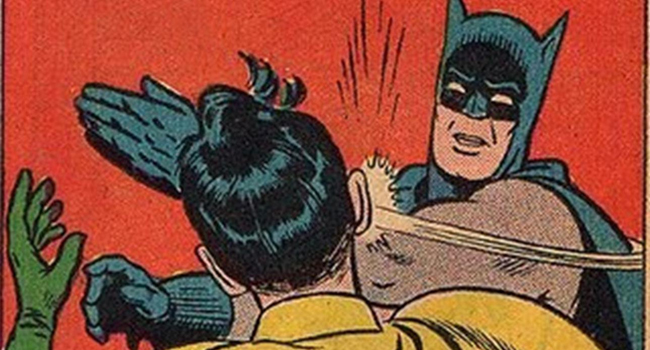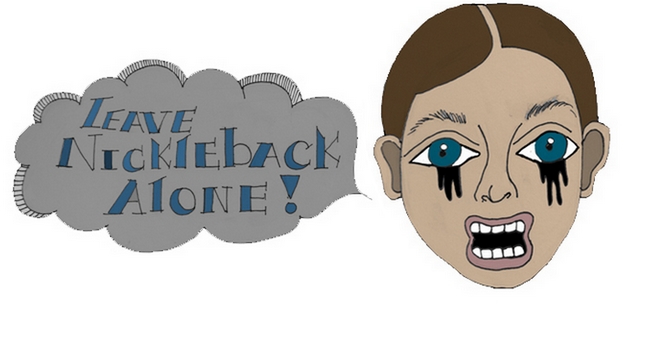Apparently, long gone are the days of demo tapes, aspirations, creating a fan base and undergoing back-breaking work to get your foot in the door. Instead, any talentless bloke is welcomed into an audition room to face scrutiny from a panel of has-been celebrity artists (think William Hung singing “She Bangs”). This international fascination with reality TV talent shows is not only harmful to the credibility of the music industry, but it also lowers the standards of music listeners. It seems like every television network has its own adaption of this type of show—complete with a jury of outdated superstar pop artists.
Here’s a breakdown of four popular musical talent shows in the United States, almost none of which have graced the industry with anything noteworthy.
“American Idol: The Search for a Superstar”
First airing in June 2002, “American Idol” has had a slew of celebrity judges, including Jennifer Lopez, Steven Tyler, Ellen DeGeneres, Paula Abdul and the lovable/hatable Simon Cowell. Eleven seasons later, Americans still eagerly await those early-season episodes of painfully awkward first auditions (think knock-kneed, pimply teenagers singing renditions of everything from Michael Jackson to Mariah Carey). As the season progresses, viewers can submit their votes via text message, and week by week, contestants are slowly eliminated. The most notable winners from the show are Kelly Clarkson, Carrie Underwood and Jordin Sparks.
http://www.youtube.com/watch?v=ayYNAEs0few
“The X Factor”
A brainchild of Simon Fuller (who also created “American Idol”), “The X Factor” differs from “American Idol” because it opens competition to any age group and allows for solo artists or groups to try out. The show is still in its infancy, however, having just finished its first season Dec. 22, 2011. Contestants go through a number of stages, which include several auditions, a “bootcamp” and eventually live performances and elimination phases by judges. From its first season, Melanie Amaro walked away the winner, touting a $5 million recording contract with Syco Music and Epic Records. To date, Amaro’s first single released is a disco, fast-tempo cover of Aretha Franklin’s “Respect.” If you didn’t know better, you might think you’re listening to the soundtrack of 1998’s Night at the Roxbury.
http://www.youtube.com/watch?v=CqjroNlL4pI
“The Voice”
Maybe the weirdest of them all, “The Voice” involves a panel of four celebrity judges (Christina Aguilera, Cee Lo Green, Adam Levine and Blake Shelton) who not only select finalists, but they are also mentors and vocal coaches to them. Contestants have a blind audition where the judges face away from the performance. With the push of a button, the judges can instantly select the contestant and spin around to see them. Contestants who are chosen to continue onto the next phase are able to then select which celebrity judge’s team they want to join. The show’s first winner was the soulful, pop-singing Javier Colon. Season two started a few weeks ago.
http://www.youtube.com/watch?v=FJhrX9vSkrU&feature=related
“The Sing-Off”
“The Sing-Off” first aired in 2009 as a competition between eight a cappella groups. Ben Folds, who has been a judge throughout all three seasons, has been accompanied by Shawn Stockman, Nicole Scherzinger, Nick Lachey and Sara Bareilles. Contestants undergo a series of auditions before performing live, when the viewers are able to vote for the winner. To give the producers some credit, “The Sing-Off” is quite different from others, mostly because of the type of talent it seeks. The winners of the three seasons, thus far, significantly vary in sound and genre. The first season’s winner was Nota, a pop Latino group from Puerto Rico; Committed, the gospel pop group from Huntsville, Ala., won in season two. The most recent season (three) wrapped up in late November with “futuristic a cappella” group Pentatonix winning.
If creators of these shows are looking for ways to engulf American television viewers each week, they take the cake. But if these show creators are truly wishing to promote and better the music industry, they have failed us.
What is perhaps most disappointing about these shows is all the time and energy spent grooming contenders to become well-regarded, respectable artists. Pop-star wannabes make their ways onto these shows with the idea that they can be manufactured into music idols. By their very foundation, these shows are backed by judges, directors, creators and producers who are reinforcing that deceiving notion. Most reality talent shows, whether they engage an audience vote or not, have failed at assembling, fabricating or mass-producing talent.
Short of a few lucky ones (Kelly Clarkson, Carrie Underwood and Jordin Sparks), a bulk of the winners haven’t made notable career breakthroughs once the filming is over. If creators of these shows are looking for ways to engulf American television viewers each week, they take the cake. But if these show creators are truly wishing to promote and better the music industry, they have failed us.



